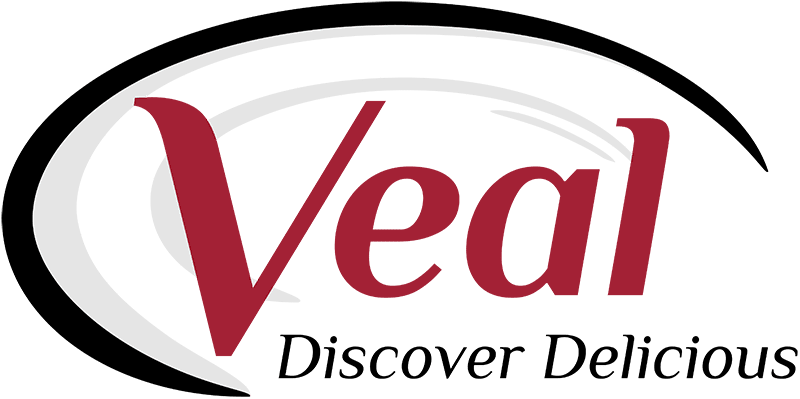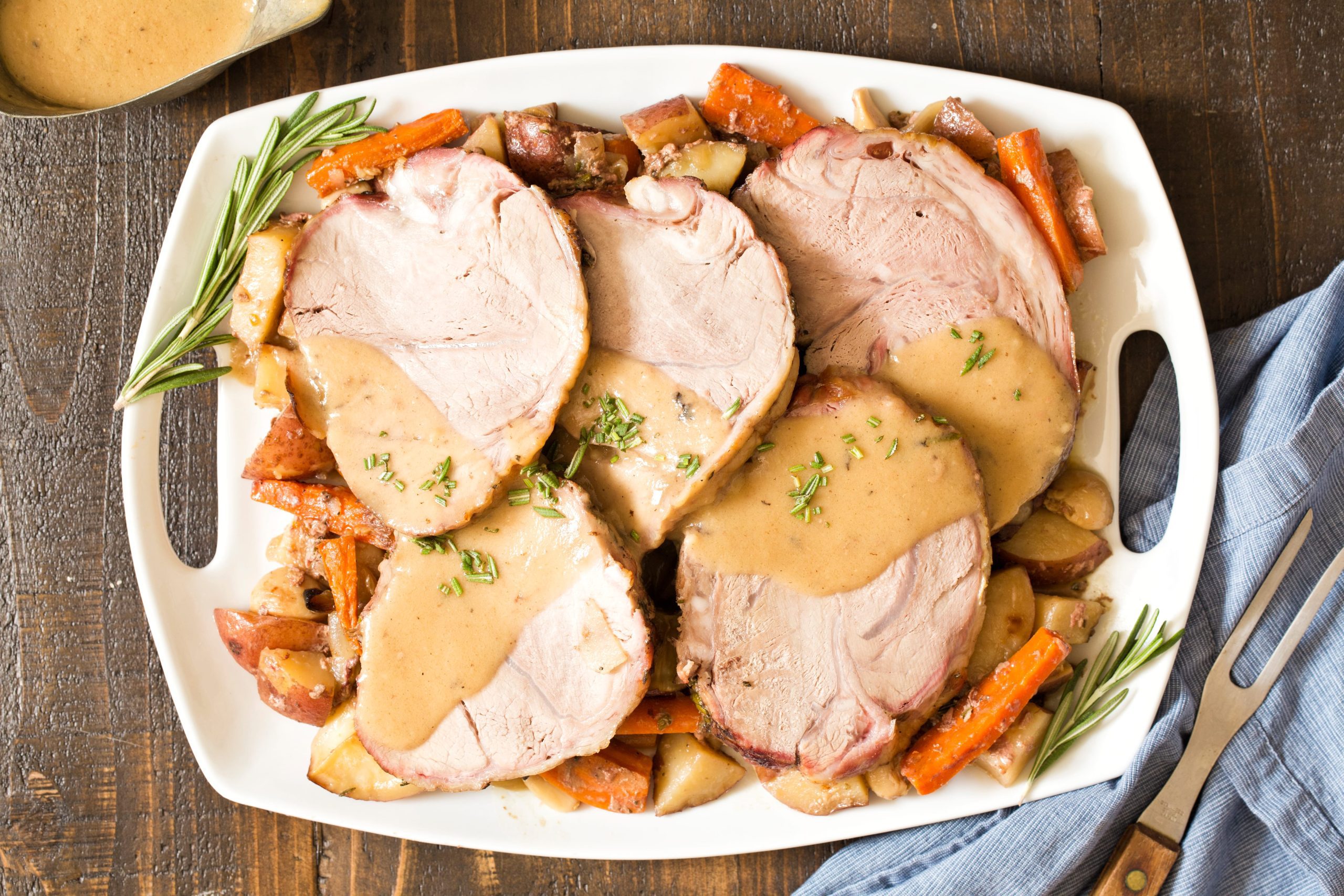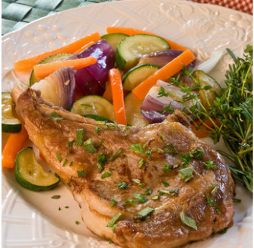SEPTEMBER VEAL BLOG
Promotions
The Beef Checkoff funded veal promotions program has added innovative recipes to its extensive recipe library that can be found on the new consumer and industry-focused Veal Made Easy website. Why not try one of these scrumptious recipes.
Crispy Veal Cutlets with Creamy Dijon Sauce
Veal Scallopini Milanese Style
Stuffed Veal Wraps with Mushrooms and Blue Cheese
Grilled Blended Meatballs with Sweet Teriyaki Glaze
Veal Quality Assurance
“Heifer or bull?”
We all know the first question asked when a cow has calved: Heifer or bull? Unless the dairy is specifically breeding for genetics, in hopes of a bull contract or is focused on selling breeding bulls, the answer most dairymen are hoping for is “heifer.” A heifer sets a dairy up with herd replacements and the promise of another top-producing cow.
However, from the time the calf hits the ground, the care this animal is given should not depend on the answer to that “heifer or bull?” question. Dairy beef producers and veal growers don’t often receive the bull calf into their care until three to seven days of age. The care given by dairy farmers during the short period of time between birth and this next stage of production is most critical to the overall health of the animal, and ultimately, the quality of meat for consumers. To learn more about recommended calf care, visit the Veal Farm website through this link.
INDUSTRY INFORMATION
Veal Production in the U.S. Continues to Grow
The number of calves harvested for veal in the U.S. has steadily grown over the past four years and that growth is expected to continue. According to USDA, in 2016 there were nearly 480-thousand calves harvested for veal, and in 2018, the total was 571,400. The increase is expected to continue in 2019 as the number of head is above mid-year levels reported last year. Every calf processed for veal displaces at least three times its weight in beef.
Veal Farm Website Experiences Growth
The Veal Farm website has experienced a 30 percent increase in overall traffic since the website was refreshed last spring. One of the items attracting attention is a video explaining how veal calves are raised. Nearly 6 million impressions of the video have been made since June. One of three people have watched 75 percent of the video, and one out of four people have watched the entire video, demonstrating a high interest from consumers for learning about how veal is raised today.
State Beef Councils
In May of this year, New York Beef Council brought eight bloggers and 6 collegiate culinary instructors on a Veal from Farm to Fork Tour. Each blogger was asked to document their experience along with a veal inspired recipe. The following blog posts speak about their personal takeaways along with six new tasty ways of eating veal! These bloggers Re-Vealed their Inner Chef-ness with these recipes that consumers can make at home. Many of the bloggers commented that they have continued to share their veal experiences off line as well, having many in-depth discussions with family, friends and followers. One blogger mentioned that one follower who was extremely skeptical about veal actually bought and cooked veal and loved it! Let’s just say she was Veal-inspired!
Grumpy’s Honey Bunch:
Pho Soup with Spicy Veal Meatballs
It’s A Keeper:
Eatpicks:
Souffle Bombay:
Jersey Girl:
Greek Kofta Kabobs with Ground Veal
Swirls of Flavor:
Regulatory Affairs
FSIS Issues Notice of Changes to Antimicrobial Resistance Monitoring System. The Food Safety and Inspection Service (FSIS) issued a notice last week to inform Public Health Veterinarians (PHVs) of changes to the sample scheduling for the National Antimicrobial Resistance Monitoring System (NARMS) surveillance sampling program for the remainder of CY2019. The Agency collects samples for the NARMS sampling program under directive FSIS Directive 10,100.1, FSIS Sampling for the National Antimicrobial Monitoring System (NARMS). This data is used to monitor for trends in antimicrobial resistance and susceptibility among enteric bacteria in food animals on a yearly basis.
FDA Lists Best Practices to Prevent Tampering and Intentional Adulteration. The Food and Drug Administration reminded industry stakeholders last week of strategies to prevent tampering and intentional adulteration of foods and cosmetics in response to recent media reports of grocery store product tampering. FDA published food security preventive measures that retail food stores and food service establishments can take, and listed the following bulleted guidance to help prevent food tampering:
-
Inspect incoming products and product returns for signs of tampering, contamination, or damage.
-
Develop a system for receiving, storing, and handling distressed, damaged, and returned products, and products left at checkout counters, that minimizes their potential for being compromised.
-
Inspect products displayed for retail sale for evidence of tampering. Look for off-condition appearance (i.e. stained, leaking, damaged packaging, missing or mismatched labels, evidence of resealing, proper stock rotation, etc.).
-
Monitor public areas for unusual or suspicious activity using security guards, monitored video cameras, one-way and two-way windows, place employee workstations for optimum visibility.
More information can be found here.
Scientific Affairs
Academic Paper Argues Anti-Meat Nutritional Claims are Scientifically Inaccurate. Academics Frédéric Leroy and Nathan Cofnas published a paper in Taylor & Francis Online criticizing the growing claims that red meat poses health threats to consumers. The paper mentions how the recently published EAT-Lancet report erroneously claims that red meat is an “unhealthy food,” while promoting vegetarian and vegan diets, provided the consumer takes Vitamin B-12 supplements. Leroy and Cofnas remind consumers that humans are biologically adapted to a diet that includes meat, and overly restricting meat consumption could compromise the delivery of nutrients and brain development, especially in younger children. The paper also criticizes sensational headlines warning of chronic diseases associated with red meat, because they often over exaggerate the increased risk. Finally, the writers point out the many benefits of red meat consumption, including its high level of protein, iron, zinc and vitamins — such as Vitamin B-12, that is only naturally found in animal protein. Read the full analysis here.
Meetings, Events and Education
Environmental and Worker Safety Award Application Open. Applications for the 2020 Environmental Recognition Awards are now being accepted. This annual awards program honors companies who have a continuous dedication to environmental improvement. Applications for this program are due by COB on Friday, Oct. 11, 2019 and are available for download here. The awards presentation will be held on Jan. 30, 2020 during the Environmental Conference for the Meat and Poultry Industry, part of the International Production and Processing Expo (IPPE). For more information about the conference, click here. Questions should be directed to Megan McCullough by email or by phone, 202-587-4241.
The Worker Safety Recognition Award Applications are also open. The Worker Safety Recognition Award Program is designed to motivate companies to improve their safety performance through the establishment of sound safety and health programs at the plant level. More information on those awards and submission details can be found here.
IPPE Launches Eighth Annual Young Leaders ’30 Under 30’ Program. The International Production & Processing Expo (IPPE) is launching the eighth annual Young Leaders “30 under 30” program targeting young professionals who normally would not have the opportunity to attend IPPE. The goal of the program is to engage and invest in the next generation of young professionals, between the ages of 21 and 29, who work for companies directly involved in the production and processing of poultry and meat or in the production of animal food. Interested applicants must apply to the program by Sept. 30 and meet select requirements, including being a member of at least one of the following IPPE sponsor organizations: the American Feed Industry Association (AFIA), the Meat Institute or U.S. Poultry & Egg Association (USPOULTRY). No more than two applicants from a single member organization may be nominated. The application can be found here.
Advanced Listeria monocytogenes Intervention and Control Workshop Registration Open. The 2019 Advanced Listeria monocytogenes Intervention and Control Workshop, which takes place at the Hilton Kansas City Airport in Kansas City, Missouri, Oct. 22 – 23, is open for registration. From sanitation to corrective actions and sampling plans to data analysis, Listeria control involves a plant’s whole team. Not only does the Advanced Listeria monocytogenes Intervention and Control Workshop have presentations on the latest developments in Listeria control and real-life examples from people with plant experience, it features hands on demonstrations, breakout sessions and case studies designed to give attendees first-hand knowledge to apply to their plant. More information and registration are available here.
Animal Care and Handling Registration Open. The 2019 Animal Care and Handling Conference, which will take place in Kansas City, Missouri, from Oct. 17 – 18, is open for registration. There is also a pre-conference workshop — available for an additional fee during registration — for sessions focusing on beef and pork fitness for transport, euthanasia and stunning as well as research updates on stunning and sensibility. This conference is the leading animal welfare educational opportunity for meat companies, their customers and those involved in the production and management of livestock and meat products. More information, including a full overview, agenda and how to register can be found here.
Internal links are funded and maintained by the Beef Checkoff. All other outgoing links are to websites maintained by third parties














